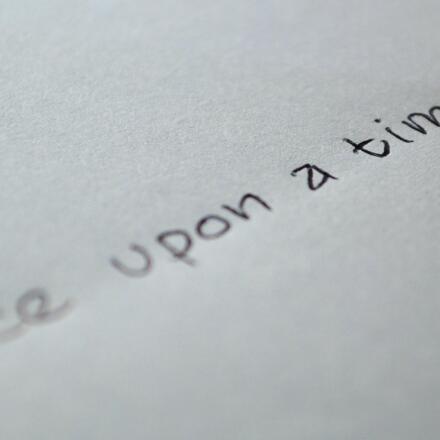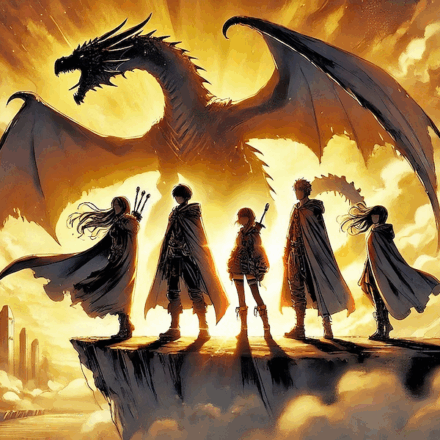
When it came to Auto Polo, I think the failed roll came long before this was taken.
“I’ve got a bad feeling about this…”
Famously uttered by space smuggler Han Solo as he approached a planet killing weapon in Star Wars, this line has appeared in nearly every Star Wars project since that first film. It’s very likely you’ve heard the line before; probably dozens of times. Just a handful of words, but they carry decades of cinematic weight. Everyone knows how to deliver it. Everyone knows what it means. Drop it into a roleplaying session and you’ll get chuckles, groans, or knowing nods.
It’s shorthand for one thing: something’s about to go wrong.
That’s the power of a well-timed line. It makes the audience lean in. It transforms a moment from procedural into cinematic. And tabletop roleplaying games are full of moments that should carry that weight — but often don’t.
Among the most overlooked: the humble reroll.
Admitting The Problem with Flat Rerolls
Rerolls exist in almost every system. D&D has Inspiration. Savage Worlds uses Bennies. Fate has Fate Points. Call of Cthulhu lets you “push” a roll. Dozens of narrative systems let players spend currency or invoke aspects for another try.
The shape is always the same: roll the dice, spend a resource, roll again.
Mechanically, this works great. Rerolls soften bad luck, protect characters from catastrophe, and give players agency. But narratively? It usually sounds like this:
“I’m gonna spend a point and reroll.”
“Cool, roll again.”
The dice clatter, the result changes or doesn’t, and the story lurches forward. The moment rarely lingers.
That’s ironic, because the reroll might be the most important roll of the night — the one that keeps the story alive.
The problem isn’t the mechanic. It’s the framing. Rerolls are inherently dramatic — a refusal to accept failure, a desperate second chance — but most games treat them as paperwork.
Fixing the Problem with Invocation Rerolls
The solution is simple: give rerolls a ritual.
Before a player rerolls, they speak a line.
That’s it. No new math. No rules rewrite. Just a phrase that reframes the reroll as performance.
The line could be lifted from pop culture — a weary “Oh, crap” like Hellboy, a defiant “Not today” like Arya Stark, or the classic “I can do this all day.” Or it could be original, something players tie to their characters in Session Zero: a paladin growling “I shall not fall,” or a spy whispering “Trust me.”
Of course, there’s always the genre-agnostic fallback:
“Failure is not an option.”
Other Ways to Invoke
The “bad feeling” line is just one approach. Invocation doesn’t have to hinge on a single phrase. Players can bring it into the fiction in different ways without slowing the game down:
- Signature Quote: A personal catchphrase that shows up whenever the stakes spike (“Not this again” or “Time to roll the hard way”).
- Environmental Cue: Pointing to a detail in the scene — flickering lights, a distant rumble — and tying it to the reroll.
- Character Habit: A nervous tick or ritual like cracking knuckles, flipping a coin, or checking a weapon.
- Table Callback: A communal phrase or in-joke everyone recognizes, reinforcing group identity.
- Meta-Acknowledgment: Saying the trope out loud (“This is the part where everything goes wrong, right?”).
Whatever option the group picks, consistency matters. The content of the phrase is less important than delivery. Short, repeatable, tied to the tone of the game, and spoken like it matters.
That little ritual transforms a reroll from a mechanical do-over into a dramatic beat.
A Brief History of Rerolls
Why do rerolls show up everywhere? Because they’re one of the oldest tools for narrative agency. Even early miniatures rules let players spend morale points for a second chance.
House rules for rerolls appeared in D&D almost immediately. Deadlands made them tactile with poker chips. Fate built them into its core with Aspects. All of them recognized the same instinct: players want to say, “Not like that.”
Invocation Rerolls follow in that tradition. They don’t replace mechanics; they highlight the drama that was always there.
What this Looks Like at the Table
So what does this look like at the table?
Val’s gonzo space opera tracks rerolls with plastic battery tokens. When Rook blows a roll in a firefight, his player tosses a blue battery on the table: “I’ve got a plan.” The reroll fails again. He smirks: “I’ve got 8% of a plan.” The table roars. By the next week, the line has become a running gag.
Morgan’s noir detective game uses plastic dimes. When the detective flubs an interrogation, the player flicks a dime across the table: “Luck’s just another kind of debt.” The coin spins, the dice tumble, and the moment feels ripped from a paperback novel.
Tamara’s pirate campaign uses plastic pieces of eight. In the middle of a naval battle, the captain slams one down: “Hoist the colours high!” In defiance of fate. The crew responds, “Never shall we die!”, the dice fly, and suddenly the reroll feels like mutiny made flesh.
And beyond those? In superhero games, players slam chips down with “I could do this all day.” In post-apocalyptic ones, survivors whisper “If I’m gonna die, I’m gonna die historic!” In romantic fantasy, an elven ranger invokes “I would rather spend one lifetime with you than face all the ages of this world alone.” (It’s a long one… Maybe just “One life time…” but it’s a great quote, nonetheless.
The props and phrases change, but the pattern is the same: the ritual makes the reroll memorable.
Tips and Pitfalls
- Get buy-in early. Session Zero is a perfect place to set tone. Shared phrases unify the group; individual ones give characters personality.
- Keep it short. A good Invocation is 3–6 words, a short sentence. Anything longer bogs down the beat. (But there are exceptions to this.)
- Props help. Poker chips, beads, coins, or scraps of paper make the ritual tactile.
- Adapt online. In VTTs, players can type their lines, use macros, or play sound clips.
- Mind the tone. Humor works if everyone’s on board, but check in to avoid breaking immersion.
- Don’t force it. Some players will warm up slowly. Let them see it in action first.
The Payoff
Invocation Rerolls elevate rerolls in three ways:
- Success feels sweeter. When a line lands and the dice succeed, the table cheers like destiny just stepped in.
- Failure feels richer. When the dice flop after an Invocation, it’s not wasted — it becomes a beat of gallows humor, tragedy, or irony.
- Table culture grows. Invocations become inside jokes, mantras, or rallying cries. They stop being mechanics and become part of the campaign’s shared language.
And the best part? They’re free. No rebalancing, no new subsystems. Just a ritual layered on top of what you already play.
We started with a line you already knew:
“I’ve got a bad feeling about this.”
Alone, it’s just words. At the table, it sets tone, builds anticipation, and makes everyone lean in.
That’s exactly what Invocation Rerolls do. They take the most mechanical of beats — the reroll — and turn it into a story moment worth remembering. The phrase, the token, the dice: together they say more than “try again.” They say: this matters.
And once your group adopts them, those Invocations stop being rules. They become culture. The lines you’ll quote weeks later. The rituals you’ll carry into new campaigns. The heartbeat of the game.
So the next time your players stare down failure, don’t just give them a reroll. Give them a chance to make it memorable.
Let them drop the token. Let them say the line.
Because sometimes the most important part of a reroll isn’t the dice.
It’s what your players say before they roll.
















